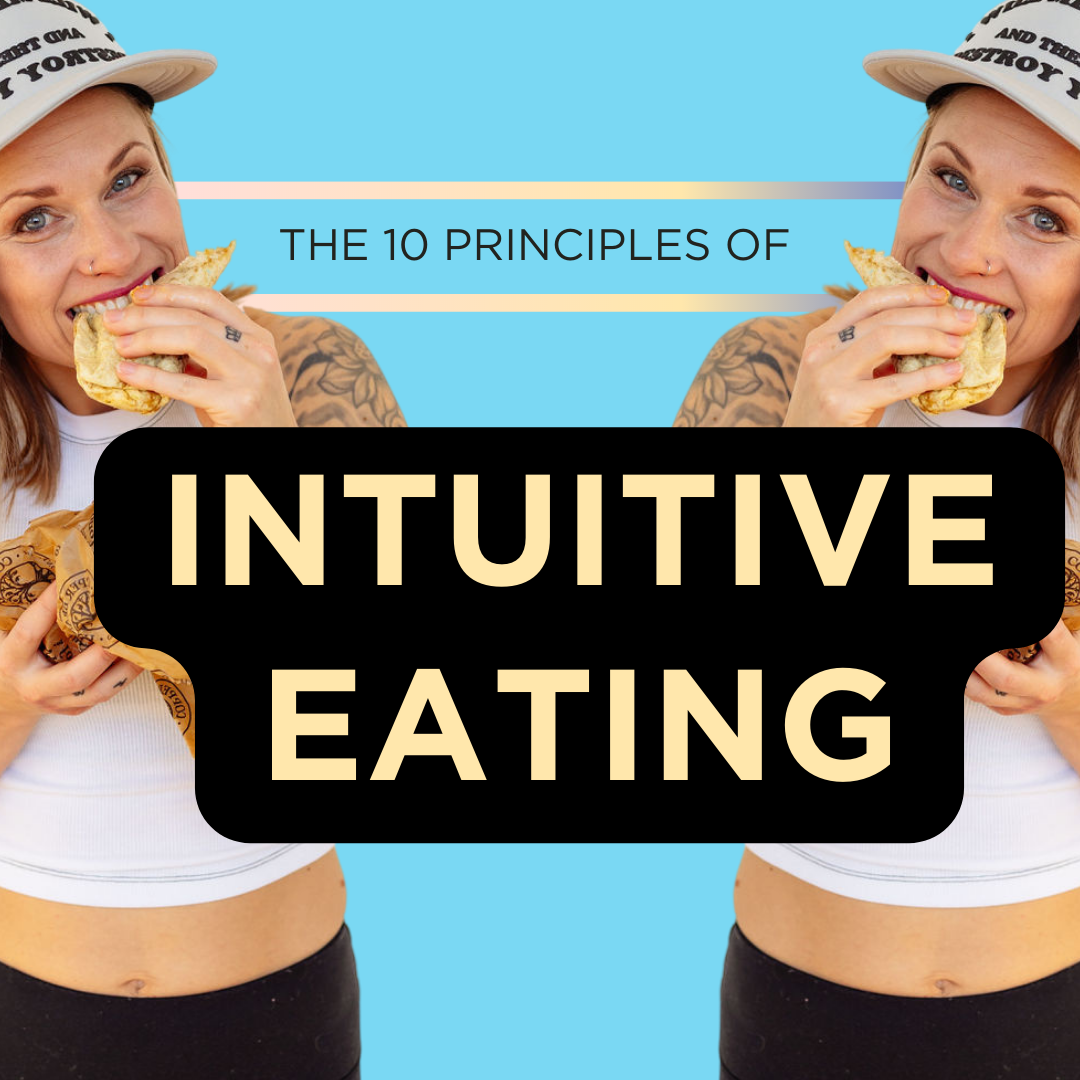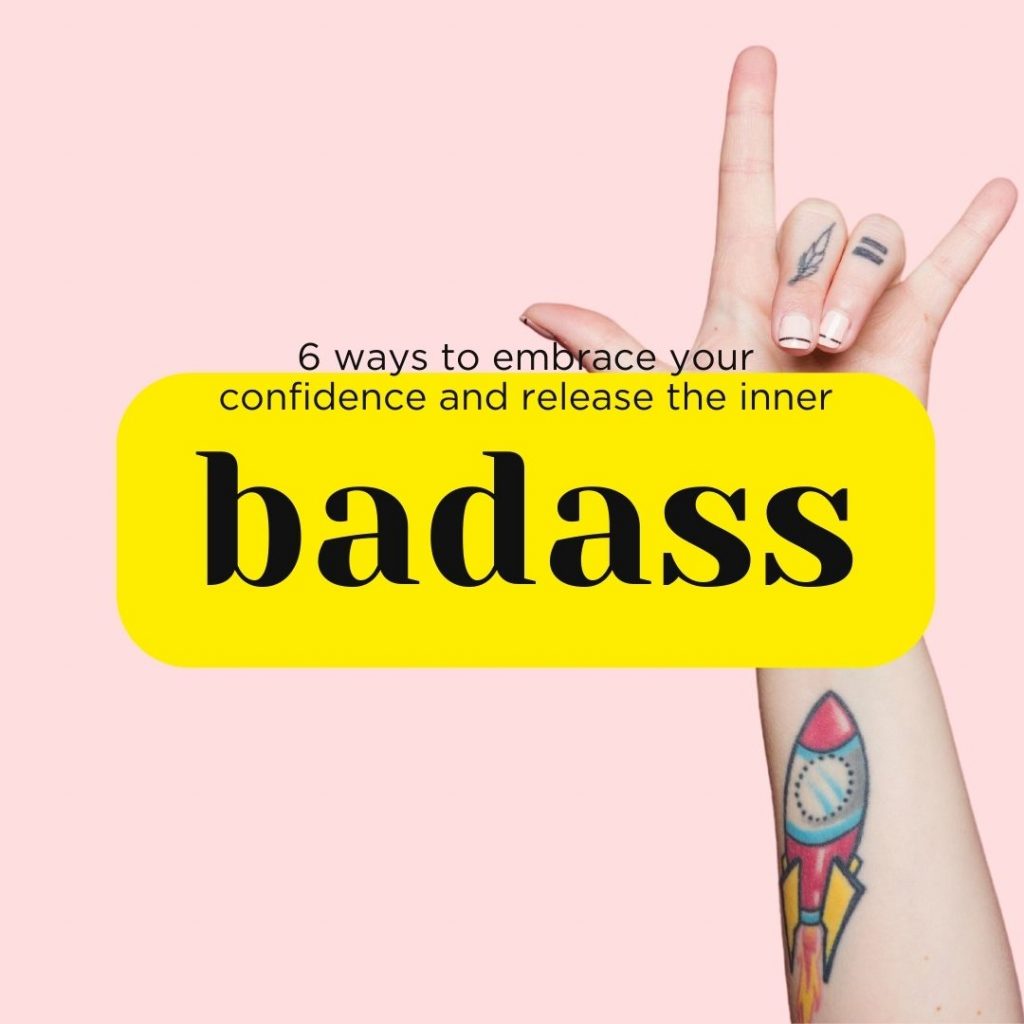Recently, someone asked me how much I weighed.
I looked at them blankly and said, “I’m not sure, I don’t weigh myself”.
(Can we take a moment to point out that people assume if you’re in a thin body, it’s acceptable to ask this….IT IS NEVER ACCEPTABLE TO ASK THIS)!
I wish I said more…
Anyways, I digress.
The fact is: even until this day, more than ten years later, I cannot step on the scale without feeling my stomach drop while I wait for the number to pop up. I know how much that little device used to have a hold on me, and it’s just not worth it. The scale used to dictate my happiness, confidence, and feelings of success, but most of all…..it destroyed my hunger cues and relationship with food.
So how did I get over it?
I got rid of my scale.
Well, kind of….
In truth, it was stolen from the trunk of my car because I used to bring it to boot camps and weigh people. (#shame).
However, I knew intuitively that my negative relationship with it had to end, so I didn’t run out and buy a new one. (I also stopped weighing people in spite of the fact the company I worked for had it as part of their pre-assessment protocol).
And then I noticed something….when I stopped stepping on the scale I started listening to my hunger cues.
And that’s when my journey with intuitive eating started….
Intuitive eating is a non-diet approach to food and eating that prioritizes listening to your body’s hunger and fullness cues, rather than external rules and restrictions. It encourages us to trust our own body’s signals and to eat what we want, in the amounts we want, and most importantly, without feeling guilty or deprived.
The concept of intuitive eating was first introduced in the 1990s by two dietitians, Evelyn Tribole and Elyse Resch, who aimed to help people break free from the cycle of dieting and disordered eating. They found that the traditional approach to nutrition, which focuses on strict rules and limitations, often leads to a negative relationship with food, body image issues, and a lack of trust in one’s own body.
Intuitive eating, on the other hand, promotes a positive and empowering relationship with food and one’s own body. It involves ten principles that help individuals develop a healthy and sustainable approach to nutrition, including:
- Reject the diet mentality: Say goodbye to diets, counting calories, and following strict rules about what you can and cannot eat.
- Honour your hunger: Listen to your body’s signals and eat when you are hungry.
- Make peace with food: All foods can fit into a healthy diet, and there are no “good” or “bad” foods.
- Challenge the food police: Stop letting negative thoughts and self-criticism control your relationship with food.
- Respect your fullness: Stop eating when you are satisfied, not stuffed.
- Discover the satisfaction factor: Eating foods you enjoy can help you feel satisfied and content.
- Honour your feelings without using food: Address emotions and stressors in healthy ways, rather than turning to food for comfort.
- Respect your body: Embrace your body and its unique needs, rather than trying to change it.
- Exercise: Find physical activities that you enjoy and that make you feel good, rather than using exercise as a means of punishment or control.
- Honour your health: Make choices that promote physical, mental, and emotional well-being.
Intuitive eating may take time and practice to master, and may even need a professional to help you get there, but when achieved, it can help foster a positive and empowering approach to nutrition, and most importantly…how you feel about yourself.
I also recommend throwing the damn scale out!
Lastly, as I approach my 18th year in the fitness industry here is what I know for sure….
Those that follow restrictive eating and exercising in an attempt to lose weight never win. They are constantly fighting for something that may not be available to them – something that society has projected onto them. They are taking up an insane amount of emotional energy focusing on things they cannot control, rather than the things they can. Most of all – it’s not sustainable. When it comes to fitness, health & mental wealth – even if it’s not intuitive eating, find something that is sustainable, gentle and works for you. That’s when the liberation comes!
If you’re struggling with disordered eating, please contact a specialist for some help.
The badass approach to fitness, health & mental wealth,
Ashley Dale Grant




